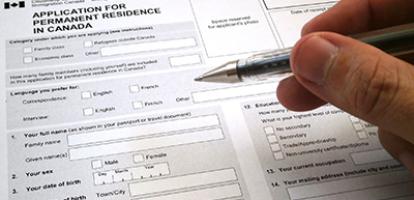It’s time for real change to reduce electricity costs, not the same old gimmicks we’ve paid for with higher taxes.
The Ontario government has signaled that it is going to find a way to reduce your electricity bill. For this to work, it should stop relying on hiking your taxes to lower your electricity bill and instead focus on real reform of the electricity system.
Most previous plans to reduce electricity bills relied on having taxpayers or other electricity users foot the bill for lower electricity costs only for some. The first plan was the Ontario Clean Energy Benefit, which came straight from tax dollars. That was replaced by the Ontario Electricity Support Program for low-income households. The province puts the cost of that program on other electricity users.
The government also recently eliminated the Debt Retirement Charge. That was a charge on all consumer bills that paid off the lingering debt from the Ontario Hydro monopoly of the late 1990s. The debt is still there, and the province will have that debt hanging over taxpayers for longer.
These plans moved money from the pocket of one group of people to another. They were Band-Aid solutions that didn’t reduce the costs of the electricity system.
Here are five ways the government can instead sustainably reduce hydro bills for all residents, without using taxpayer dollars.
- First, the province should drop its byzantine electricity support program for large industrial consumers. Industrial consumers save money if they slash electricity use during the five highest Ontario-wide demand hours of the year. It’s an arbitrary and expensive way to cut electricity costs for some. Small businesses and residents pay higher bills because of the policy. Instead, the province should let innovative companies provide the incentive to save based on electricity prices. One potential benefit of relying on a market is that businesses and consumers with Nest smart thermostats can get paid to ease up on their air conditioning for a few minutes. That only works if the government lets markets, not their own programs, determine when it makes sense to cut electricity demand.
- Second, the province should follow through on its planned Hydro One sale. If the government retains majority ownership of Hydro One, the company will still be at the whim of unpredictable politics. Private investors can bring cost discipline that would keep costs lower than otherwise. The provincial regulator can ensure the private company passes on cost savings to consumers. Ed Clark, the provincial advisor to the province on selling Hydro One, said that having provincial ownership of regulated electricity assets was “adding a belt when already wearing suspenders.”
- Third, the province should scrap a tax on utility sales that’s similar to the Land Transfer Tax, but is much higher and only applies to cities if they sell their local electricity company. The tax is so high that sales don’t happen. Removing that barrier would kick-start privately led consolidation of municipally owned distributors. Merging the smallest municipal-owned local companies would likely mean lower operating costs, and savings for consumers. Cities will be thankful too. Cities could sell their local electricity companies to pay for new transit lines or buses, or pay down debt.
- Fourth, the province should follow through on a commitment to reform how it signs contracts with generators. Right now, the province signs long-term contracts with electricity generators. Instead, the province should make generators compete in auctions for the right to hold short-term contracts to generate electricity. Changing the way the province agrees to terms with electricity generators would pair well with consolidation of local distributors. Bigger local companies would be stronger and competitive negotiators with electricity generators. Local companies – not bureaucrats and politicians at Queen’s Park – would be best able to decide what kind of electricity supply their local customers need in the auction.
- Fifth, the province needs to set limits on how much control over the electricity system it can try to grasp. Every government is tempted to fiddle with the electricity system for some kind of political advantage, even if that means higher costs in the future. Strong regulators can curb some of these excesses. However, the government recently tied the hands of the province’s regulator with a law it recently passed. The government should restore the checks and balances that used to be in place to protect electricity users.
The public call for reducing electricity costs is getting louder and louder. It’s time for real change to reduce electricity costs, not the same old gimmicks we’ve paid for with higher taxes. These five proposals would deliver sustainably lower costs for consumers.
Benjamin Dachis is an Associate Director of Research at the C.D. Howe Institute.





